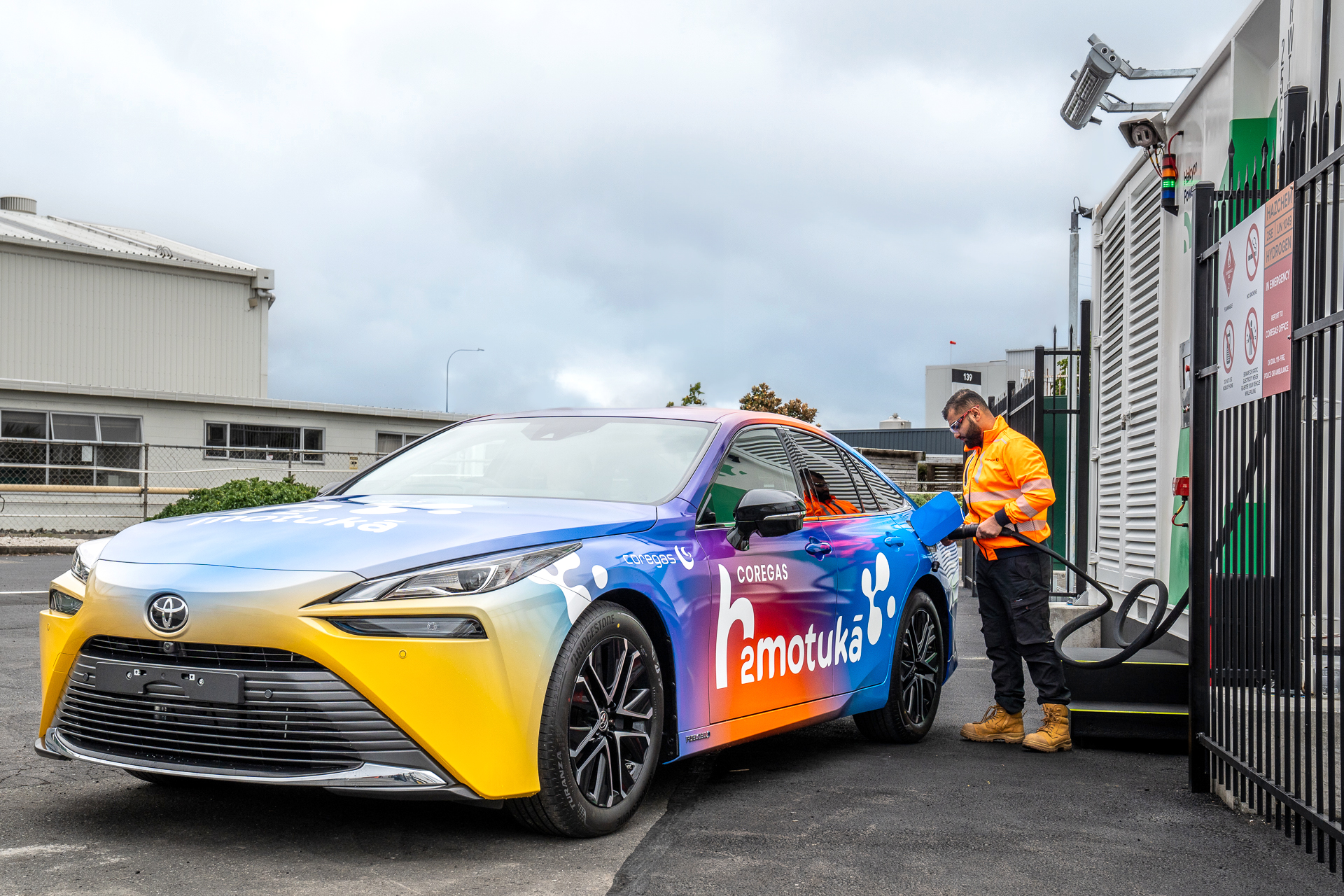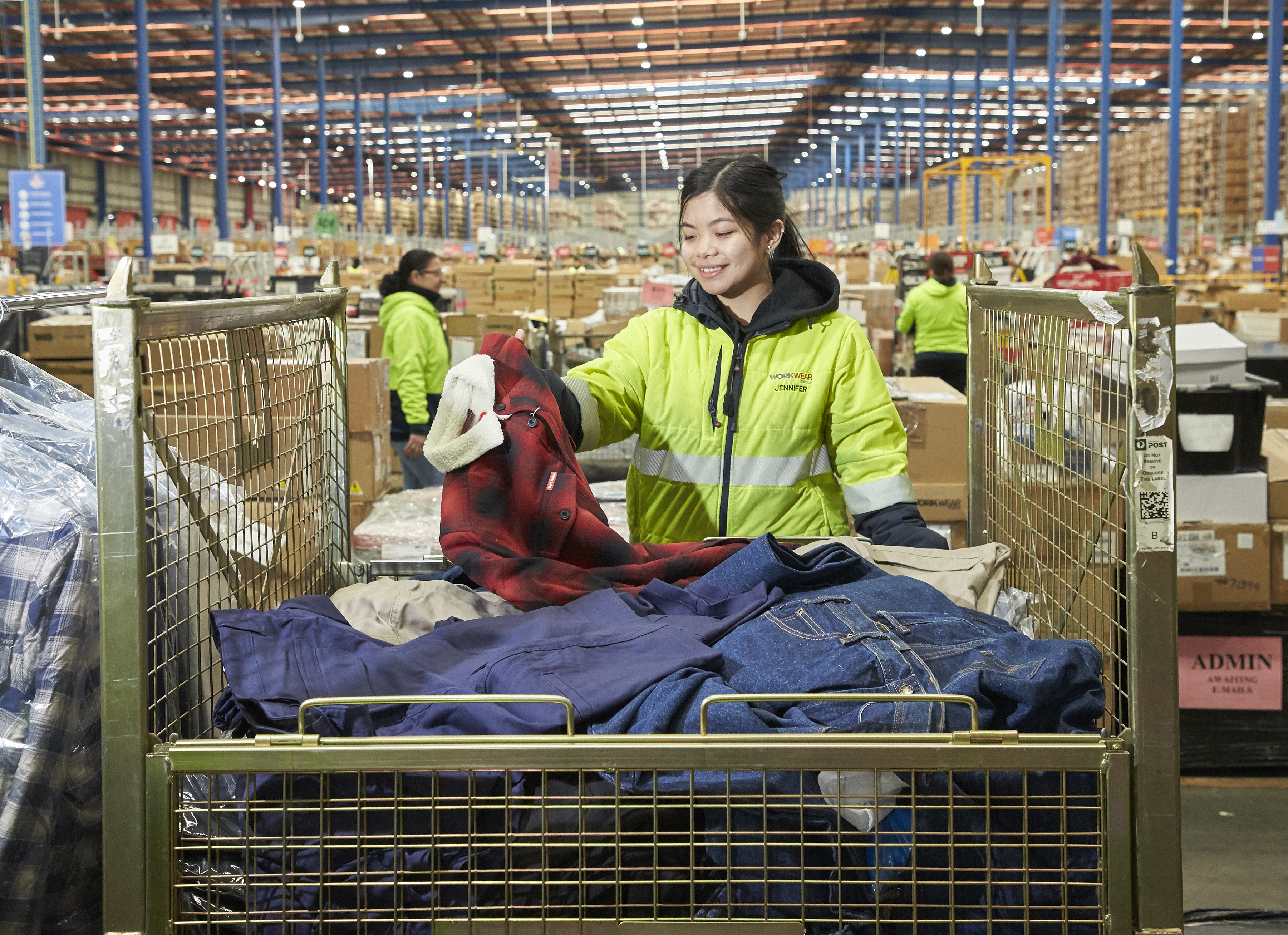
Industrial and Safety - Climate change resilience
Industrial and Safety (excluding Coregas) has set a target to reduce Scope 1 and Scope 2 emissions by 45 per cent by 2025, relative to a 2018 baseline and net zero Scope 1 and Scope 2 emissions by 2035. Coregas’ target is a 30 per cent reduction by 2035, relative to a 2022 baseline and net zero Scope 1 and Scope 2 emissions by 2050.
In 2024, Industrial and Safety (excluding Coregas) continued to build climate resilience across its businesses, reducing Scope 1 and Scope 2 (market-based) emissions by 5.2 per cent relative to 2023. It is currently 42.6 per cent below its 2018 baseline.
Coregas’ Scope 1 and Scope 2 (market-based) emissions increased marginally by 0.4 per cent relative to 2023. The division remains on track to deliver against its interim and net zero targets.
Energy efficiency
In 2024, Blackwoods facilitated LED lighting enhancements at three sites and installed rooftop solar at its Melbourne Distribution Centre. Coregas has recently committed to installing a 541kW rooftop solar system at its Sydney branch, which is expected to be operational in 2025.
During the year, Coregas’ New Zealand operations, NZ Safety Blackwoods and Workwear Group procured NZ Certified Renewable Energy Certificates (NZECs) to achieve 100 per cent renewable electricity across its New Zealand operations.
Fuel reduction
Fuel use remains a material source of Industrial and Safety’s operational emissions. As part of its commitment to reduce emissions, where possible the division continued to transition its internal combustion engine fleet vehicles to electric and hybrid vehicles at the end of vehicle lease plans. The division acknowledges there are inherent supply chain disruptions with new vehicles and as a result, its fuel-related emissions remain on par year-on-year. Currently, 208 vehicles in its fleet are hybrid, up from 103 in 2023.
For Coregas, fuel-related reductions will require investments in hydrogen-fuelled heavy vehicles within its supply chain, optimising its freight network and where feasible introducing battery-electric vehicles.
NZ Safety Blackwoods has transitioned 91.0 per cent (103 out of 113) of its passenger internal combustion vehicles to hybrid vehicles. The last petrol passenger vehicle will be off contract by December 2024. The reminder of the fleet is made up of light commercials (nine vehicles), which will be retained as petrol/diesel until an alternative and commercial option to transition to hybrid or electric become available
Coregas Hydrogen
Through a number of hydrogen-related strategic initiatives, Coregas is making progress towards its 30 per cent emissions reduction by 2035.
In July 2023, Coregas launched H2Station, Australia’s first hydrogen refuelling station for heavy vehicles, which is building demand for its locally produced hydrogen gas and supporting the broader community to decarbonise their transport.
In April 2024, Coregas NZ and Halcyon Green Hydrogen, launched New Zealand’s first green hydrogen fast refuelling station at Wiri, South Auckland. The heavy vehicle refuelling station is an integral piece of a growing New Zealand-wide network of supply locations.
In December 2023, Coregas announced a $16 million investment in a new Air Separation Unit (ASU) facility at its existing Darra site in Brisbane, Queensland. The new facility will increase its cryogenic fluid production in Queensland to meet demand in the region, which is currently supplied from its Port Kembla, NSW facility. Bringing production closer to customers will reduce Coregas’ transport-related Scope 1 emissions. Commissioning of the facility is planned for mid-2025.

